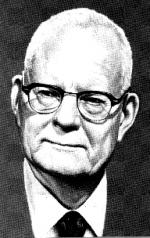Disable ads!
W. Edwards Deming
William Edwards Deming (October 14, 1900 – December 20, 1993) was an American engineer, statistician, professor, author, lecturer, and management consultant. Educated initially as an electrical engineer and later specializing in mathematical physics, he helped develop the sampling techniques still used by the U.S. Department of the Census and the Bureau of Labor Statistics. In his book The New Economics for Industry, Government, and Education, Deming championed the work of Dr. Walter Shewhart, including Statistical Process Control, Operational Definitions, and what Deming called The Shewhart Cycle which had evolved into PDSA (Plan-Do-Study-Act). This was in response to the growing popularity of PDSA, which Deming viewed as tampering with the meaning of Shewhart's original work. Deming is best known for his work in Japan after WWII, particularly his work with the leaders of Japanese industry. That work began in August 1950 at the Hakone Convention Center in Tokyo when Deming delivered a seminal speech on what he called Statistical Product Quality Administration. Many in Japan credit Deming as the inspiration for what has become known as the Japanese post-war economic miracle of 1950 to 1960, when Japan rose from the ashes of war to become the second most powerful economy in the world in less than a decade, founded on the ideas Deming taught: The problems facing manufacturers can be solved through cooperation, despite differences. Marketing is not sales. It is the science of knowing what repeat customers think of a product, as well as whether, and why, they will buy it again. Initial stages of design must include market research, applying statistical techniques for planning and inspecting samples. The manufacturing process must be perfected. Deming is best known in the United States for his 14 Points (Out of the Crisis, by Dr. W. Edwards Deming, Preface) and his system of thought he called the System of Profound Knowledge. The system comprises four components or "lenses" through which to view the world simultaneously: Appreciating a system Understanding variation Psychology Epistemology, the theory of knowledge Deming made a significant contribution to Japan's reputation for innovative, high-quality products, and for its economic power. He is regarded as having had more impact on Japanese manufacturing and business than any other individual not of Japanese heritage. Despite being honored in Japan in 1951 with the establishment of the Deming Prize, he was only just beginning to win widespread recognition in the U.S. at the time of his death in 1993. President Reagan awarded him the National Medal of Technology in 1987. The following year, the National Academy of Sciences gave Deming the Distinguished Career in Science award.
 Read more on wikipedia.org Read more on wikipedia.org
 All quotes by W. Edwards Deming All quotes by W. Edwards Deming
 Edit Edit
|

|
|
|
|
|
Background photo by Giuliana
|